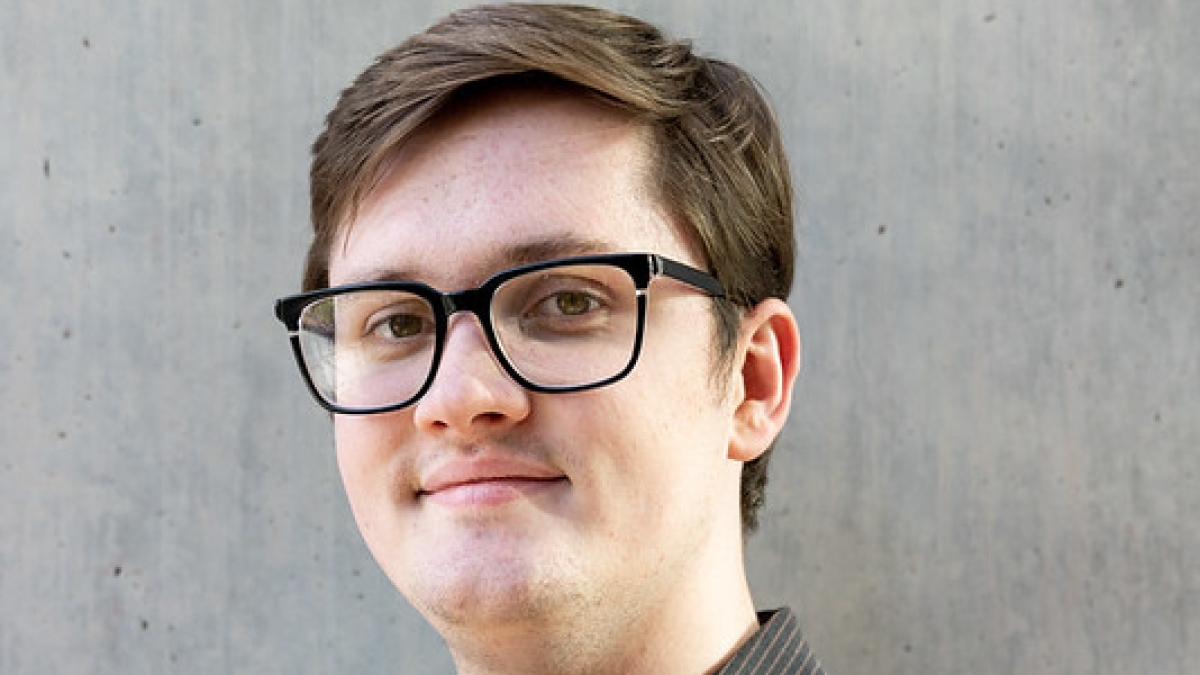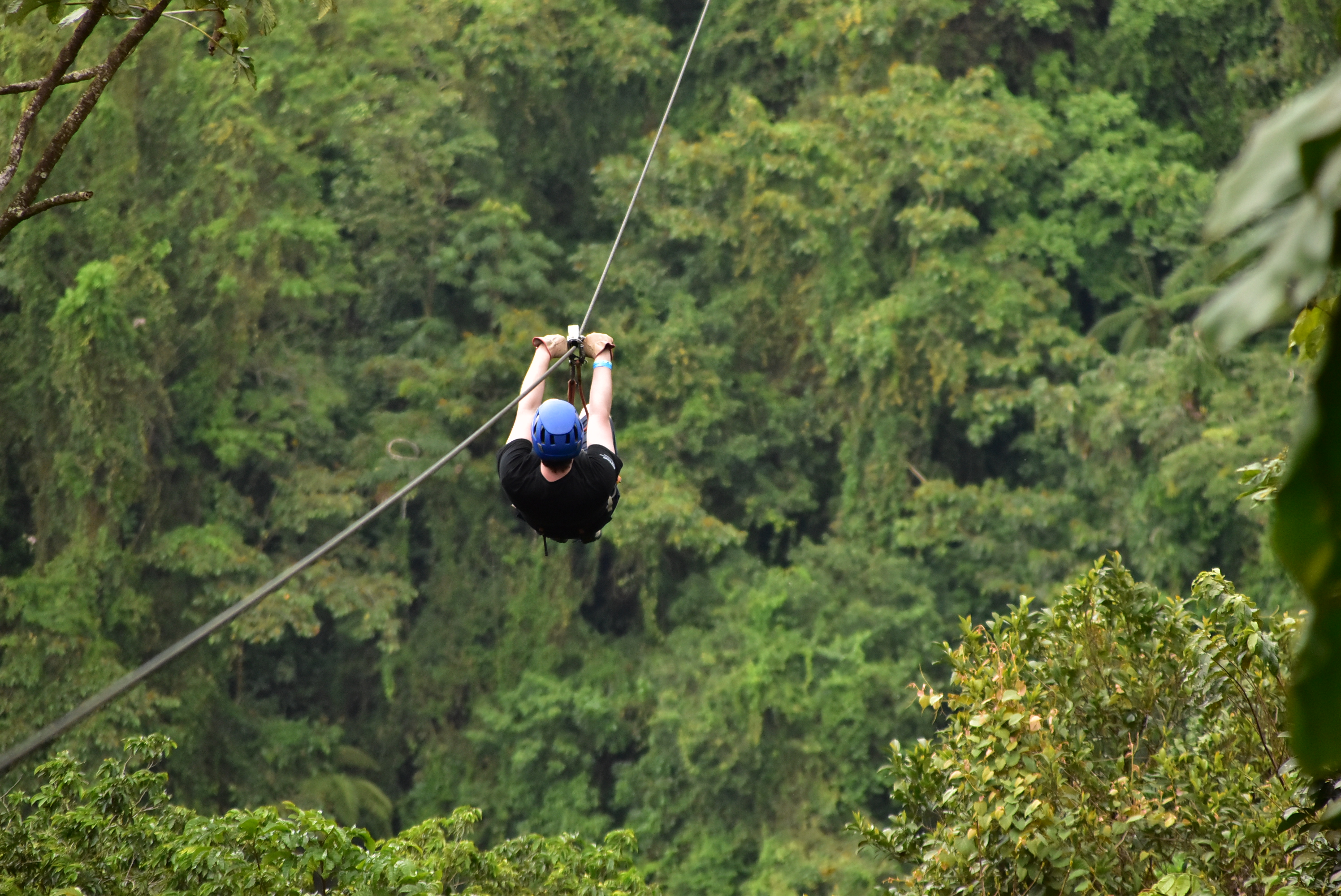ASU Dean's Medalist, graduate aspires to earn PhD to teach communication

Corbin Kohtz is a Barrett, The Honors College student and has made the Dean’s List for seven consecutive semesters.
Editor’s note: This story is part of a series of profiles of notable spring 2023 graduates.
Corbin Kohtz has been named The College of Liberal Arts and Sciences spring 2023 Dean’s Medalist for the Hugh Downs School of Human Communication and will graduate this May with a double major in communication and political science and a minor in English literature.
While at ASU, Kohtz has held several paid and volunteer positions with many diverse organizations, including the Association of Human Communication, or AHC, where he held two leadership positions: programming officer and vice president. Kohtz supported events and social gatherings that encouraged communication students to develop community and build career readiness.
In addition to assisting his fellow majors in the AHC, he also held a job as a student worker at ASU Career and Professional Development Services from his freshman to junior years, providing several levels of career development support to students, staff, alumni and community members.
"During all of this, I grew as a leader, as a communicator and as a relationship builder," Kohtz said.
Currently, Kohtz works at Moon Valley High School in the Glendale Union High School District as an English language learner (ELL) instructional assistant supporting immigrant, refugee and asylum students in developing their English language proficiency.
"I have been able to work with students from all over the world, including Myanmar, Syria, Afghanistan, Egypt, Somalia, Vietnam, Mexico, Cuba, Guatemala and Honduras," Kohtz said. "These students have given me a lens for understanding education as it impacts ELL students, disabled students with accommodation and support plans, and even mainstream and honors students whom I did not recognize as a student myself. Seeing the potential of these students not being bolstered because of their language needs has created a passion to advocate for them to approach opportunities they may not realize are available to them."
Not surprisingly, Kohtz wants to continue helping others reach their career and academic goals by earning his PhD in communication to teach important skills for career and life.
"Since I was in sixth grade, I've seen myself as an educator when I helped the kindergarten class during my free time," Kohtz said. "Something about being a point of support in another person's growth has always been a valuable position for me. As I've gone through my education, I've found different ways of being that educator, so I wanted to find a career path that encourages me to continue learning and being an educator at the same time."

Corbin Kohtz zip-lines in Costa Rica with Barrett, The Honors College. Photo courtesy of Corbin Kohtz
Kohtz is a Barrett, The Honors College student and has made the Dean’s List for seven consecutive semesters. In collaboration with both Barrett and the Hugh Downs School, Kohtz completed an honors-directed thesis entitled “‘Critical Racism’: Anti-Intellectualism as a Rhetorical Narrative.”
Along with submitting "Critical Racism" to the Barrett Archive for honors theses, Kohtz also presented his theory and findings to the Western States Communication Association's Undergraduate Scholars Research Conference at their annual conference in 2022 in Portland.
ASU News recently asked him a few questions about his college experience.
Question: What was your “aha” moment, when you realized you wanted to study communication?
Answer: The biggest "aha" moment that drew me in for studying rhetorical and critical cultural communication was when my professor from COM 321, Tyler Rife, shared with us that he was writing about a park bench for his dissertation. Immediately, I knew that there was so much room for me to perform important analyses related to seemingly mundane words, objects and experiences that have real impacts on the lives of people. Later, I was able to connect with (Assistant Professor) Loretta LeMaster and (Instructor) Megan Stephenson for supporting me in writing my honors thesis, "Critical Racism": Anti-Intellectualism as a Rhetorical Narrative." I quickly realized that there were areas within all of the education that needed to be addressed utilizing critical rhetorical and critical cultural theories for verbalizing the lasting impacts of our understandings of intellectualism and its politicization.
Q: What’s something you learned while at ASU — in the classroom or otherwise — that surprised you or changed your perspective?
A: The impact of language and imagery in human communication. In COM 421, my professor, Corey Reutlinger, lead an incredible conversation related to the power of communication as it defines our reality and the power that words hold within society. Even after nearly two years, I find myself seeing how that impact continues to manifest in life.
Q: Why did you choose ASU?
A: I chose ASU because I come from a low-income family in Phoenix and the financial aid provided was the most feasible. Additionally, the resources and opportunities that were vividly apparent made me comfortable that I would be able to carve my own path with ample support. Looking back, that could not be closer to the truth. I have found myself participating in programs and opportunities that I never imagined possible coming from a Title I high school.
Q: What’s the best piece of advice you would give to students?
A: Do something. I truly believe in the interconnectedness at ASU and the ways that networking can bridge students to get involved in unique opportunities outside of their expectations. Doing something — whether that is student work, clubs/organizations, volunteering or taking classes outside of your designated program — can open so many incredible doors.
Q: What was your favorite spot on campus, whether for studying, meeting friends or just thinking about life?
A: My favorite spot was the balcony upstairs of the Student Services (SSV) building. I loved to invite friends to get food from Memorial Union and sit up there. The view of the campus is beautiful, especially on the west-facing balcony that looks out to Gammage Hall and the beautiful architecture and landscape surrounding it.
Q: What are your plans after graduation?
A: I am going to be participating in Teach for America in Springfield, Massachusetts. There, I will be working as an English as a Second Language teacher at a Title I school for at least two years. While I am in the corps, I will also be attending Boston University in pursuit of a Master of Education in curriculum and teaching. My intention is to get experience in education before applying to a PhD program with a focus on critical communication pedagogy.
Q: If someone gave you $40 million to solve one problem on our planet, what would you tackle?
A: Most definitely education at large. If I were given $40 million, I would want to push for change within education to transform it in a way that is accessible for all students and able to give students the opportunity for success regardless of who they are.
More Arts, humanities and education

ASU professor's project helps students learn complex topics
One of Arizona State University’s top professors is using her signature research project to improve how college students learn…

Award-winning playwright shares her scriptwriting process with ASU students
Actions speak louder than words. That’s why award-winning playwright Y York is workshopping her latest play, "Becoming…

Exceeding great expectations in downtown Mesa
Anyone visiting downtown Mesa over the past couple of years has a lot to rave about: The bevy of restaurants, unique local shops…

